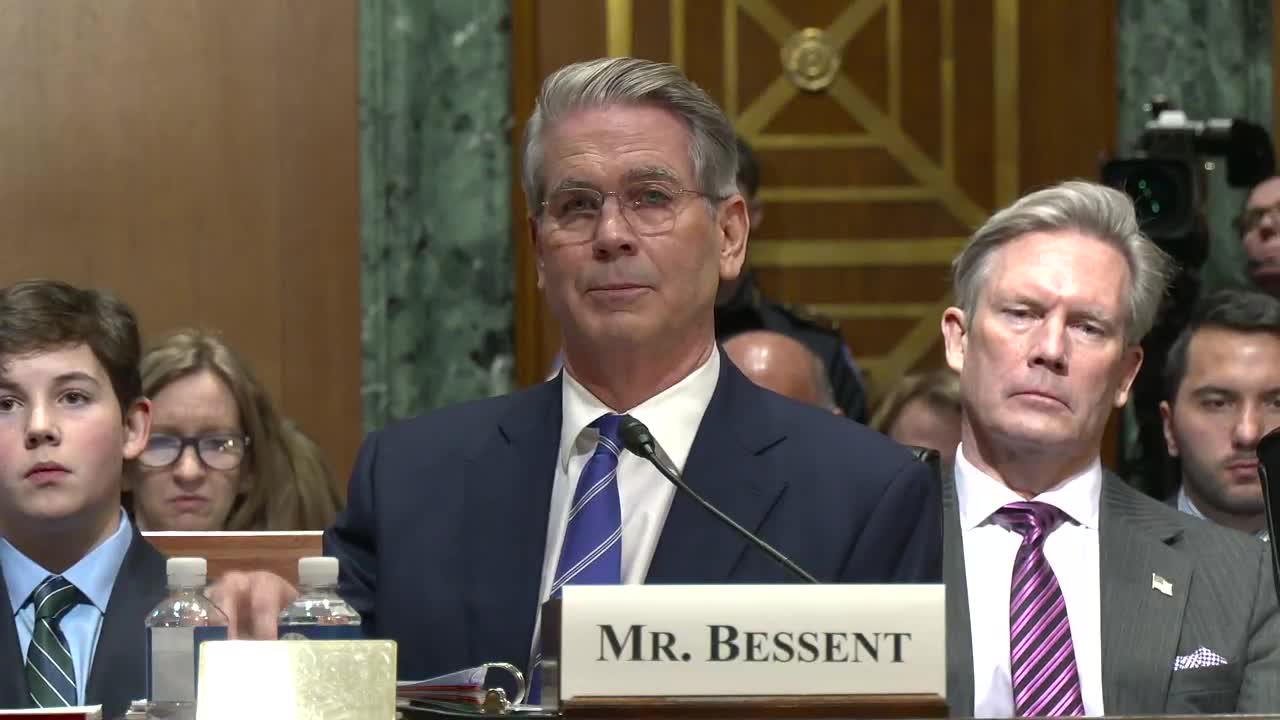Bessent on sanctions, Ukraine and CFIUS: senators push for tougher measures and impartial investment reviews
Get AI-powered insights, summaries, and transcripts
Subscribe
Summary
Senators asked Scott Bessent how Treasury would use sanctions to pressure Russia, how it would oversee foreign investment reviews (CFIUS), and how Treasury would deploy sanctions and energy policy as national‑security tools.
Treasury’s role in national security and sanctions emerged as a major theme in the hearing. Senators from both parties urged a robust Treasury response on Russia, tighter controls on Chinese investment in sensitive sectors, and impartial reviews of foreign acquisitions that pose national security risks.
Senator Mark Warner and others said sanctions on Russia and its oil sector should be strengthened to pressure the Kremlin and to deny revenue used for military aggression. Bessent said he would support raising pressure on Russian oil majors, argued that higher U.S. energy production would enable tougher sanctions, and promised to use sanctions as part of a “whole of government” strategy if confirmed.
Senator Todd Young pressed Bessent on impartiality in the Committee on Foreign Investment in the United States (CFIUS) review process — citing the Nippon Steel/US Steel matter as an example of community anxiety when the government blocks or delays deals. Bessent said that if such a deal reappeared before CFIUS, the Committee would conduct the normal impartial statutory review.
Why it matters: Treasury oversees sanctions policy and chairs interagency reviews of foreign investments; its choices affect geopolitics, energy security, and domestic industries. Senators seeking stronger leverage over Russia said they expected Treasury to be prepared to escalate sanctions if needed.
Ending: Bessent pledged to push for tougher enforcement of sanctions where appropriate, to consult with senators and to return with more detailed plans if confirmed.
